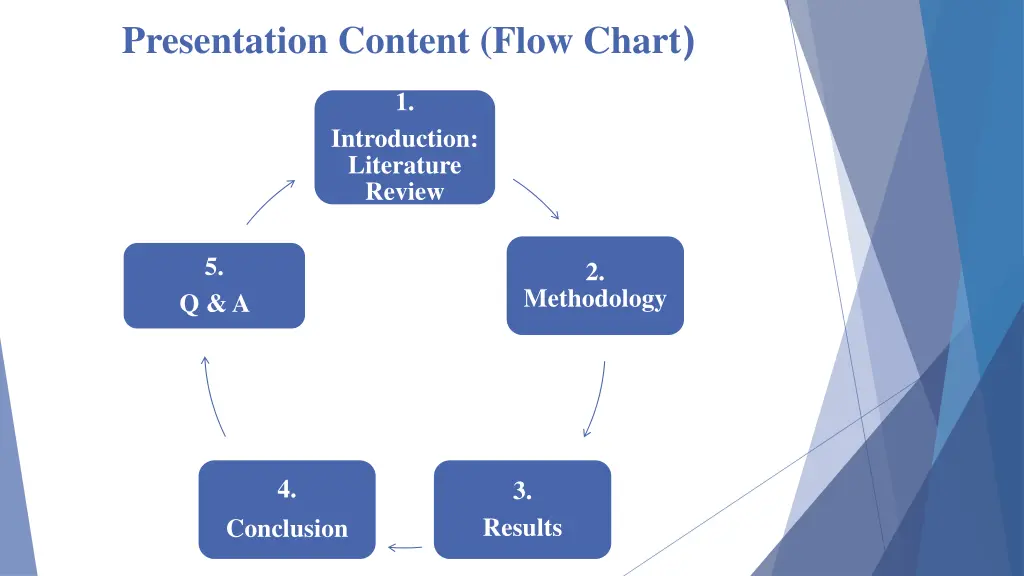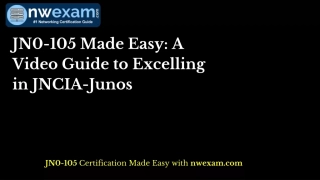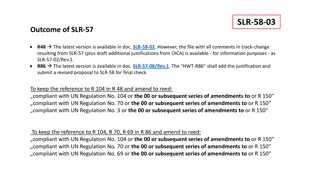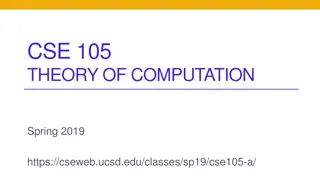
Understanding Anxiety Levels of English Majored University Students in Graduation Research Project (GRP)
Explore the anxiety and attitude of English majored university students towards Graduation Research Project (GRP), with a focus on literature review, methodology, results, and conclusion. Discover the significance of studying learning anxiety in relation to the GRP and identify solutions to cope with anxiety. Investigate the causes of learner anxiety and potential modifications to teaching methods to alleviate anxiety for language learners.
Download Presentation

Please find below an Image/Link to download the presentation.
The content on the website is provided AS IS for your information and personal use only. It may not be sold, licensed, or shared on other websites without obtaining consent from the author. If you encounter any issues during the download, it is possible that the publisher has removed the file from their server.
You are allowed to download the files provided on this website for personal or commercial use, subject to the condition that they are used lawfully. All files are the property of their respective owners.
The content on the website is provided AS IS for your information and personal use only. It may not be sold, licensed, or shared on other websites without obtaining consent from the author.
E N D
Presentation Transcript
Presentation Content (Flow Chart) 1. Introduction: Literature Review 5. 2. Methodology Q & A 4. 3. Results Conclusion
The Anxiety and Attitude of English Majored University Students toward Graduation Research Project (GRP)
Literature Review Tanveer (2007) reported that consideration of learner anxiety reactions in learning to speak another language by a language teacher is deemed highly important. Krashen and Terrell (1983) considered low anxiety would facilitate language acquisition.
Scovel (1978) indicated that positive correlations between foreign language anxiety and achievement in the target language. Spielmann and Radnofsky (2001) also found that a certain level of anxiety could cause a facilitative effect on language learners.
Elkahafaifi (2005) found that anxiety can have negative impacts on EFL learners. Hamouda (2013) found that EFL learners had problems in their listening ability due to anxiety of uncertain materials and lack of practice. Cheng (1999) claimed an extreme negative correlation between anxiety and speaking.
Significance of the Study Many past studies have focused on EFL learning anxiety in the aspects of the four basic skills in English (Melvin 2008; Hsu & Tsu-Chia 2011; Saito, Horwitz, & Garza 1999; Sellers, 2000).
Little to no attention has been paid to the learning anxiety regarding GRP. To find the solution and coping mechanisms to deal with learning anxiety for language learners. To identify the causes of learner anxiety and modify teaching methods.
Purpose of the study The purpose of this study is to investigate the anxiety and attitude of English majored university students toward the GRP.
Research Question 1. What is the anxiety level of English majored university students toward the instructor, language use, and research tasks during graduation research project (GRP) ? 2. What is the attitude of English majored university students toward graduation project (GRP) ?
Participants 35 senior students from the Department of Applied Foreign Languages at National Penghu University of Science and Technology. 16 males and 19 females 5 participants for the interview; and 1 from each GRP group. The participants have been learning English for over 10 years.
Instruments Aquestionnaire and a set of interview questions. The questionnaire consisted of 30 questions related to the anxiety and attitude of students toward GRP. There are a total of 5 interview questions regarding the GRP.
Data Analysis After the data was collected and coded, an Excel software was used to compute and analyze the data. Descriptive analysis was used.
Figure 2. Student Anxiety toward Face-to-Face Meetings with Project Instructor SA = Strongly Agree, A = Agree, N = Neutral, D = Disagree, SD = Strongly Disagree
Figure 3. Student Anxiety toward Instructors Unclear Ideas and Instructions SA = Strongly Agree, A = Agree, N = Neutral, D = Disagree, SD = Strongly Disagree
Figure 4. Student Anxiety toward the Inability to Find International Journals.
Figure 5. Student Anxiety toward the Inability to Organize Information. SA = Strongly Agree, A = Agree, N = Neutral, D = Disagree, SD = Strongly Disagree
Figure 9. Student Attitude toward Their Improvements SA = Strongly Agree, A = Agree, N = Neutral, D = Disagree, SD = Strongly Disagree
Figure 10. Student Attitude toward the Training Course SA = Strongly Agree, A = Agree, N = Neutral, D = Disagree, SD = Strongly Disagree
1. During the course of your project writing, what kind of assistance did your instructor provide? Positive Feedback Negative Feedback We did not know how to operate SPSS, so the teacher asked someone else to do it for us. Also, the teacher gave us a research project that was already half-finished and wanted us to continue from there. (Student A, interviewed). Most of this project was not written by us; instead, our teacher did most of the writing because our performance was considered not good enough. Our job was to conduct the survey and look for relevant papers. (Student C, interviewed). **
Our instructor gave us clear directions and showed us the structuring and every steps and details of our research from the beginning. Besides, the instructor guided us how to apply the correct method to look for relevant data. (Student E, interviewed). Our instructor helped us revise our writing and prepare for the oral presentation with presentation, our instructor continued to provide detailed suggestions to help us finish the revision. (Student D, interviewed). patience. After our oral
2. In your opinion, what is the main cause for your anxiety during this project writing task? We often had difficulties communicating because the instructor s directions were ambiguous, which made us very anxious. (Student A, interviewed). often inconsistent and My anxiety mainly came from my group member, not the instructor. I think one of the member s frequent absence, lack of participation, and subjectivity seriously increased my anxiety level and also hindered the progression of our project. (Student D, interviewed). I did not have much anxiety from the GRP. (Student E, interviewed).
3. Do you think that the English courses offered by the department were effective and sufficient for you to handle your project? If not enough? Which part do you think is not enough? No, it s not enough. The instructors should teach the students how to use the survey system before we conduct the survey. (Student A, interviewed). The SPSS course taught in the department is not useful, so the department should make improvements in this regard. (Student C, interviewed). Our department offers a few helpful and relevant courses but it s still not enough. (Student D, interviewed).
4. After finishing the project, which parts of your English skills do you think need to be strengthened? I should improve vocabulary and grammar. (Student C, interviewed). I believe that my writing and reading abilities need more polishing. (Student B, interviewed). I think my listening comprehension and speaking skills need to be improved. (Student E, interviewed).
5. How do you feel about the graduation requirement writing project? What kind of suggestions do you have to improve this type of course? I don t think GRP is necessary. Instead, I think our graduation requirement for students language proficiency should be set higher. (Student A, interviewed). I believe that the GRP is necessary; however, I think the teachers must be trained on how to properly instruct us. Also, there should be more relevant courses offered. (Student C, interviewed).
Interview Results Received help from teacher 2 Received little to no help from teacher 3 Anxiety from group members 1 Q1 Participants Little to no anxiety 1 Q2 Anxiety from teachers Participants 3 Department courses are useful BUT too limited Department courses are NOT useful for GRP Q3 Participants 3 2 Vocabulary grammar and reading 3 reading and writing skills listening and speaking skills Q4 Participants 1 1 GRP is NOT necessary 2 Q5 GRP is necessary Participants 3
Questionnaire on Anxiety Majority Minority Unclear instructions and ideas English was used Searching for international journals Thinking of a upcoming speech Forgetting the content of a speech
Questionnaire on Attitude Majority Minority Teacher Teacher aid is necessary Teacher s instructions are clear Not improved Research and Language skills Improved Content of the GRP Not easy Too easy
Pedagogical Implications EFL instructors should be more aware of the possible causes of learner anxiety. Help instructors to adjust their teaching methods and materials in order to minimize the problems and increase learning effectiveness and efficiency. Guide future scholars to make more in-depth research on anxiety related topics.
Limitations of the Study Due to the relatively small sample size of the participants, the findings in this study can not be generalized. We suggest future research can include more participants from different schools in different regions and distribute more questionnaires to increase reliability and validity of research.
Suggestions for Future Research Researchers can explore anxiety for student learning further, by conducting interdepartmental or multi-school research. Conduct research on EFL instructor anxiety to investigate teacher anxiety level in the classroom find a feasible solution to improve teaching quality and also enhance teaching efficiency.








